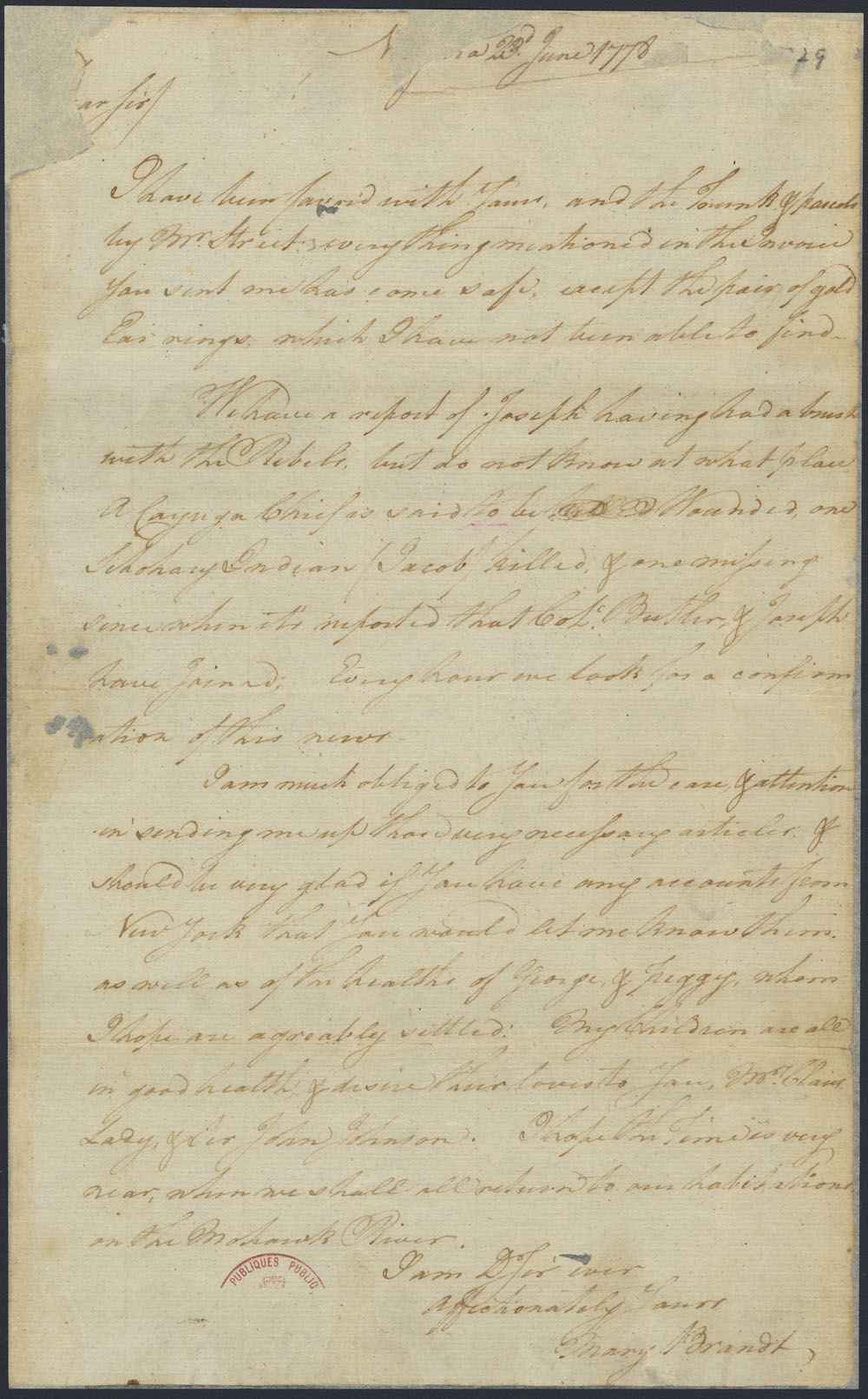
This site is a work in progress undertaken by me, Michael D. Elliot, a settler and teacher living on land traditional to the Mississauga First Nation, but which later (following and because of the American Revolution) became Tyendinaga Mohawk Territory (so-called after Thayendanegea/Joseph Brant, brother to Degonwadonti/Molly Brant). I live near near the place known as Tiohná:wate in the language of the Kanienʼkehá꞉ka or Mohawk people. That same place is known as Belleville, Ontario, Canada in the language(s) of imperialist French and British settlers, whose children (I among them) still occupy and exploit this land today.
My aim in building this site is to capture here in digital form every surviving written record that pertains to the life of Degonwadonti, also known as Molly Brant and as Konwatsi'tsiaienni. My hope is that this site can serve as a repository of documents pertaining to Molly/Degonwadonti, one that is readily available to anyone looking to explore and make meaning out of her life and out of the complex political, cultural, economic, and family histories she was embedded within.
Please note that, as with any person — but especially with an Indigenous person, and especially with Molly/Degonwadonti — written records can only ever present incomplete accounts of lives lived, and these accounts are always refracted through the prejudices and preoccupations of the people who chose to (and who are able to) leave written records behind. This site recognizes the crucial importance of using other forms of evidence beyond mere written records when attempting to understand and make meaning out of the past. Archaeological evidence, for example, records the relationships individuals and groups had (and have) with material culture (objects of use and of exchange). Similarly, geographical evidence records the physical interactions between people and the spaces they construct for themselves, as well as the ecologies they live in relation to. This site does not (as yet) attempt to capture such evidence. Nor does it attempt to capture Mohawk oral-traditional evidence, which is of particular — perhaps even primary — importance in understanding the lives, lifeways, and worlds of historical Mohawk people like Molly/Degonwadonti. Because oral-traditional evidence is embodied within living groups and cultures, it is not always accessible to outsiders. I am such an outsider, and so this current project will limit its focus narrowly to written evidence, flawed as that evidence is.
The centre-piece of this project is the Chronology page, which (insofar as is possible) presents all documents in chronological order.
